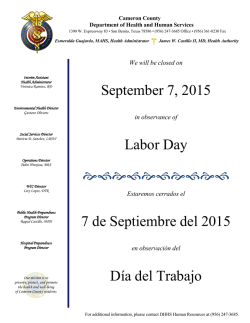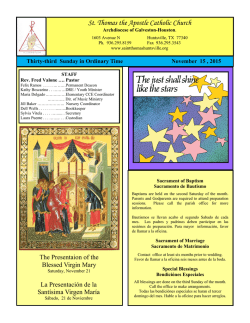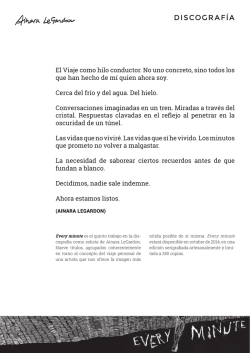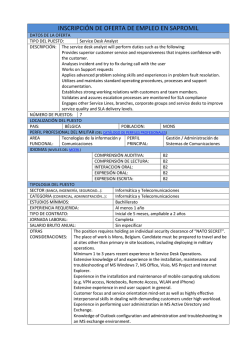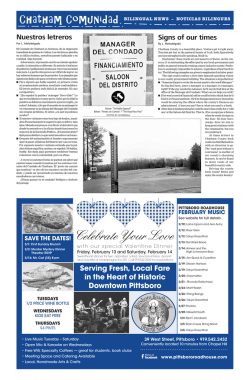
http://creativecommons.org/licenses/by-nc
http://creativecommons.org/licenses/by-nc-sa/3.0/ Le phrases in anglese es de dominio public, mi traduction in interlingua es licentiate como "Creative Commons Attribution-Non commercial-Distribue in le mesme modo 3.0", i.e. illo pote esser utilisate gratis si 1) le fonte (ego mesme) es indicate insimul con le texto, 2) illo non es commercialisate directemente o indirectemente, e 3) illo non es alterate / modificate. Roberto Capuzzo presidente del association Interlingua Italia http://interlingua.altervista.org/ 1. The sun shines. Le sol resplende. 2. The sun is shining. Le sol es resplendente. 3. The sun shone. Le sol resplendeva. 4. The sun will shine. Le sol resplendera. 5. The sun has been shining. Le sol ha resplendite. 6. The sun is shining again. Le sol resplende de novo. 7. The sun will shine tomorrow. Le sol resplendera deman. 8. The sun shines brightly. Le sol resplende brillantemente. 9. The bright sun shines. Le sol brillante resplende. 10. The sun is rising now. Le sol surge ora. 11. All the people shouted. Tote le turba critava. 12. Some of the people shouted. Parte del turba critava. 13. Many of the people shouted twice. Plures del turba critava duo vices. 14. Happy people often shout. Le personas gaudiose sovente crita. 15. The kitten jumped up. Le catton saltava. 16. The kitten jumped onto the table. Le catton saltava sur le tabula. 17. My little kitten walked away. Mi parve catton iva via. 18. It's raining. Il pluve. 19. The rain came down. Le pluvia descende. 20. The kitten is playing in the rain. Le catton joca in le pluvia. 21. The rain has stopped. Le pluvia se ha stoppate. 22. Soon the rain will stop. Presto le pluvia se stoppara. 23. I hope the rain stops soon. Io spera que le pluvia se stoppara presto. 24. Once wild animals lived here. Antea, animales salvage viveva hic. 25. Slowly she looked around. Lentemente illa guardava circa. 26. Go away! I via! 27. Let's go! Que nos vade! 28. You should go. Tu deberea ir. 29. I will be happy to go. Io essera gaudiose de ir. 30. He will arrive soon. Ille arrivara tosto. 31. The baby's ball has rolled away. Le balla del pupo ha rolate via. 32. The two boys are working together. Le duo garsones sta a collaborar. 33. This mist will probably clear away. Iste nebula probabilemente se dissipara. 34. Lovely flowers are growing everywhere. Flores agradabile sta a crescer ubique. 35. We should eat more slowly. Nos deberea eder plus lentemente. 36. You have come too soon. Tu ha venite nimie presto. 37. You must write more neatly. Tu ha de scriber plus struitemente. 38. Directly opposite stands a wonderful palace. Sur le fronte directemente opposite sta un meraviliose palatio. 39. Henry's dog is lost. Le can de Henry es perdite. 40. My cat is black. Mi catto es nigre. 41. The little girl's doll is broken. Le pupa del parve puera es rumpite. 42. I usually sleep soundly. Habitualmente io dormi profundemente. 43. The children ran after Jack. Le pueros curreva post Jack. 44. I can play after school. Io pote jocar post le schola. 45. We went to the village for a visit. Nos vadeva al village pro un visita. 46. We arrived at the river. Nos arrivava al fluvio. 47. I have been waiting for you. Ego te attendeva. 48. The campers sat around the fire. Le campatores sedeva circa le foco. 49. A little girl with a kitten sat near me. Un parve puera con un catton sedeva juxta me. 50. The child waited at the door for her father. Le puera attendeva su patre al porta. 51. Yesterday the oldest girl in the village lost her kitten. Heri le puera plus vetule del village perdeva su catton. 52. Were you born in this village? Es tu nascite in iste village? 53. Can your brother dance well? Sape tu fratre dansar ben? 54. Did the man leave? Esque ille homine partiva? 55. Is your sister coming for you? Esque tu soror sta a venir pro te? 56. Can you come tomorrow? Pote tu venir deman? 57. Have the neighbors gone away for the winter? Ha le vicinos ite via per le hiberno? 58. Does the robin sing in the rain? Esque le pectorerubie canta in le pluvia? 59. Are you going with us to the concert? Sta tu a venir con nos al concerto? 60. Have you ever travelled in the jungle? Ha tu unquam viagiate in le jungla? 61. We sailed down the river for several miles. Nos navigava infra le fluvio per aliquot millias. 62. Everybody knows about hunting. Totos es al currente del chassa. 63. On a Sunny morning after the solstice we started for the mountains. In un matino de sol post le solstitio nos partiva pro le montanias 64. Tom laughed at the monkey's tricks. Tom rideva al burlas del simia. 65. An old man with a walking stick stood beside the fence. Un ancian con un baston deambulatori stava ultra le sepe. 66. The squirrel's nest was hidden by drooping boughs. Le nido del sciurolo esseva celate per ramos reclinate. 67. The little seeds waited patiently under the snow for the warm spring sun. Le parve semines attendeva patientemente infra le nive pro le calide sol primaveral. 68. Many little girls with wreaths of flowers on their heads danced around the bonfire. Plure parve pueras con guirlandas de flores sur lore capites dansava circa le foco. 69. The cover of the basket fell to the floor. Le coperculo del corbe cadeva a terra. 70. The first boy in the line stopped at the entrance. Le prime garson del fila faceva halto al entrata. 71. On the top of the hill in a little hut lived a wise old woman. Sur le culmine del collina un sage, vetule femina viveva in un parve cabana. 72. During our residence in the country we often walked in the pastures. Durante nostre permanentia in le campania nos sovente deambulava in le pasturas. 73. When will your guests from the city arrive? Quando arrivara vostre hospites ab le citate? 74. Near the mouth of the river, its course turns sharply towards the East. Juxta le ore del fluvio, su curso torna asperemente verso est. 75. Between the two lofty mountains lay a fertile valley. Inter le duo montes elevate jaceva un valle fertile. 76. Among the wheat grew tall red poppies. Inter le grano cresceva alte papaveres rubre. 77. The strong roots of the oak trees were torn from the ground. Le forte radices del arbores de querco esseva divellite ex le terreno. 78. The sun looked down through the branches upon the children at play. Le sol observava infra trans le brancas sur le pueros jocante. 79. The west wind blew across my face like a friendly caress. Le vento del west sufflava per mi facie como un caressa amical. 80. The spool of thread rolled across the floor. Le bobina de filo rolava per le pavimento. 81. A box of growing plants stood in the window. Un buxo de plantas repente stava sur le fenestra. 82. I am very happy. Ego es multo gaudiose. 83. These oranges are juicy. Iste oranges es succose. 84. Sea water is salty. Le aqua de mar es salate. 85. The streets are full of people. Le stratas es plen de gente. 86. Sugar tastes sweet. Le sucro ha un gusto dulce. 87. The fire feels hot (to me / factual). Ego / On sente le foco multo calide. 88. The little girl seemed lonely. Le parve puera semblava solitari. 89. The little boy's father had once been a sailor. Le patre del parve puero olim habeva essite un marinero. 90. I have lost my blanket. Ego ha perdite mi copertura. 91. A robin has built his nest in the apple tree. Un pectorerubie ha construite su nido sur un pomiero. 92. At noon we ate our lunch by the roadside. A meridie nos edeva nostre prandio al bordo del itinere. 93. Mr. Jones made a little knife for his daughter. Sr. Jones faceva un parve cultello pro su filia. 94. Their voices sound very happy. Lor voces sona multo gaudiose. 95. Is today Monday? Es hodie lunedi? 96. Have all the leaves fallen from the tree? Ha tote le folios cadite ab le arbore? 97. Will you be ready on time? Essera tu prompte in tempore? 98. Will you send this message for me? Inviara tu iste message pro me? 99. Are you waiting for me? Sta tu a attender me? 100. Is this the first kitten of the litter? Es isto le prime catton del nidata? 101. Are these shoes too big for you? Es iste scarpas tro grande pro te? 102. How wide is the river? Quanto large es le fluvio? 103. Listen. Audi. 104. Sit here by me. Vole ben seder juxta me. 105. Keep this secret until tomorrow. Mantene iste secreto usque a deman. 106. Come with us. Vene con nos. 107. Bring your friends with you. Porta tu amicos con te. 108. Be careful. Es attente. 109. Have some tea. Vole ben sumer un poco de the. 110. Pip and his dog were great friends. Pip e su can esseva grande amicos. 111. John and Elizabeth are brother and sister. John e Elizabeth es fratre e soror. 112. You and I will go together. Tu e ego vadera insimul. 113. They opened all the doors and windows. Illes aperiva tote le portas e fenestras. 114. He is small, but strong. Ille es minute, sed forte. 115. Is this tree an oak or a maple? Es iste arbore un querco o un acere? 116. Does the sky look blue or gray? Pare le celo blau o gris? 117. Come with your father or mother. Veni con tu patre o matre. 118. I am tired, but very happy. Ego es fatigate, sed multo gaudiose. 119. He played a tune on his wonderful flute. Ille exequeva un motivo sur su flauta meraviliose. 120. Toward the end of August the days grow much shorter. Erga le fin de augusto le dies se accurta multo. 121. A company of soldiers marched over the hill and across the meadow. Un compania de soldatos marchava super le collina e trans le prato. 122. The first part of the story is very interesting. Le prime parte del conto es multo interessante. 123. The crow dropped some pebbles into the pitcher and raised the water to the brim. Le corvo faceva cader alcun calculos intra le urceo e altiava le nivello del aqua usque le orlo. 124. The baby clapped her hands and laughed in glee. Le pupa batteva su manos e rideva con gaudio. 125. Stop your game and be quiet. Stoppa de jocar e sta quiete. 126. The sound of the drums grew louder and louder. Le sono del tambures deveniva semper plus forte. 127. Do you like summer or winter better? An tu prefere estate o hiberno? 128. That boy will have a wonderful trip. Celle puero facera un viage meraviliose. 129. They popped corn, and then sat around the fire and ate it. Illes faceva exploder le mais, e postea illes sedeva circa le foco e lo mangiava. 130. They won the first two games, but lost the last one. Illes vinceva le prime duo partitas, sed perdeva le ultime. 131. Take this note, carry it to your mother; and wait for an answer. Prende iste nota e porta lo a tu matre; attende le responsa. 132. I awoke early, dressed hastily, and went down to breakfast. Ego me eveliava presto, me vestiva hastivemente e iva in basso a jentar. 133. Aha! I have caught you! Ah! Ego te surprendeva in flagrante! 134. This string is too short! Iste cordon es troppo curte! 135. Oh, dear! the wind has blown my hat away! Uf! Le vento ha sufflate via mi cappello! 136. Alas! that news is sad indeed! Que infortuna! Iste nova es vermente triste! 137. Whew! that cold wind freezes my nose! Juste celo! iste vento frigide gela mi naso! 138. Are you warm enough now? Es tu assatis calide ora? 139. They heard the warning too late. Illes audiva le advertimento tro tarde. 140. We are a brave people, and love our country. Nos es un populo brave, e nos ama nostre Pais. 141. All the children came except Mary. Tote le pueros veniva minus Mary. 142. Jack seized a handful of pebbles and threw them into the lake. Jack sasiva un manata de calculos e los jectava in le laco. 143. This cottage stood on a low hill, at some distance from the village. Iste villetta sta sur un collinetta, a qualque distantia ab le village. 144. On a fine summer evening, the two old people were sitting outside the door of their cottage. In un belle vespere estive, le duo ancianes stava a seder foras del porta de lore villetta. 145. Our bird's name is Jacko. Le nomine de nostre ave es Jacko. 146. The river knows the way to the sea. Le fluvio cognosce le via al mar. 147. The boat sails away, like a bird on the wing. Le barca naviga via sur le velas, como un ave sur le alas. 148. They looked cautiously about, but saw nothing. Illes guardava cautemente circa, sed illes videva nihil. 149. The little house had three rooms, a sitting room, a bedroom, and a tiny kitchen. Le parve domo habeva tres cameras, un salon, un camera de lecto, e un minuscule cocina. 150. We visited my uncle's village, the largest village in the world. Nos visitava le village de mi oncle, que es le village plus grande del mundo. 151. We learn something new each day. Nos apprende qualcosa de novo omne die. 152. The market begins five minutes earlier this week. Le mercato initia cinque minutos ante iste septimana. 153. Did you find the distance too great? An tu trovava le distantia troppo grande? 154. Hurry, children. Hasta vos, pueros. 155. Madam, I will obey your command. Seniora, ego obedira a vostre commando. 156. Here under this tree they gave their guests a splendid feast. Hic sub iste arbore illes dava un splendide festa pro lor hospites. 157. In winter I get up at night, and dress by yellow candlelight. In hiberno ego me evelia de nocte, e ego me vesti al lumine jalne de candela. 158. Tell the last part of that story again. Narra de novo le ultime parte de ille historia. 159. Be quick or you will be too late. Es rapide o tu essera troppo in retardo. 160. Will you go with us or wait here? Venira tu con nos o attendera tu ci? 161. She was always, shabby, often ragged, and on cold days very uncomfortable. Illa esseva semper mal vestite, sovente lacerate, e in le dies frigide multo disagradabile. 162. Think first and then act. Pensa antea e postea age. 163. I stood, a little mite of a girl, upon a chair by the window, and watched the falling snowflakes. Ego restava, un parve mica de puera, super un sedia presso le fenestra, e ego guardava le floccos de nove cader. 164. Show the guests these shells, my son, and tell them their strange history. Monstra iste conchas al invitatos, filio mie, e narra lor estranie historia a illes. 165. Be satisfied with nothing but your best. Es satisfacte de nihil excepte tu melio. 166. We consider them our faithful friends. Nos les considera nostre amicos fidel. 167. We will make this place our home. Nos rendera iste placia nostre domo. 168. The squirrels make their nests warm and snug with soft moss and leaves. Le sciuros face lor nidos calide e confortabile con musco morbide e folios. 169. The little girl made the doll's dress herself. Le parve puera ipse faceva le habito del pupa. 170. I hurt myself. Ego me face / faceva mal. 171. She was talking to herself. Illa stava a parlar con se ipse. 172. He proved himself trustworthy. Ille probava de esser digne de fiducia. 173. We could see ourselves in the water. Nos poterea / poteva vider nos in aqua. (Gratias a Ruud Harmsen pro le suggestion) 174. Do it yourself. Face lo per te ipse. 175. I feel ashamed of myself. Ego ha vergonia de me ipse. 176. Sit here by yourself. Asside hic per te ipse. 177. The dress of the little princess was embroidered with roses, the national flower of the Country. Le habito del parve princessa esseva brodate con rosas, le flor national del Pais. 178. They wore red caps, the symbol of liberty. Illes portava bonettos rubre, le symbolo del libertate. 179. With him as our protector, we fear no danger. Con ille como nostre protector, nos time necun periculo. 180. All her finery, lace, ribbons, and feathers, was packed away in a trunk. Tote su vestimentos elegante, dentellas, bandas, e plumas esseva impaccate in un coffro. 181. Light he thought her, like a feather. Ille la pensava legier, como un pluma. 182. Every spring and fall our cousins pay us a long visit. Cata primavera e autumno, nostre cosinos visita nos a longe. 183. In our climate the grass remains green all winter. In nostre climate, le herba remane verde per tote le hiberno. 184. The boy who brought the book has gone. Le garson qui acquireva le libro ha ite. 185. These are the flowers that you ordered. Istos es le flores que tu ordinava. 186. I have lost the book that you gave me. Ego ha perdite le libro que tu dava a me. 187. The fisherman who owned the boat now demanded payment. Le piscator qui possedeva le barca ora rogava le pagamento. 188. Come when you are called. Veni quando tu essera advocate. 189. I shall stay at home if it rains. Ego restara al domo si il pluvera. 190. When he saw me, he stopped. Quando ille videva me, ille stoppava. 191. Do not laugh at me because I seem so absent minded. Non deride me quia ego pare assi absente de mente. 192. I shall lend you the books that you need. Ego te prestara le libros que tu necessita. 193. Come early next Monday if you can. Vene presto lunedi proxime, si tu pote. 194. If you come early, wait in the hall. Si tu arriva presto, attende in le sala. 195. I had a younger brother whose name was Antonio. Ego habeva un fratre plus juvene cuje nomine esseva Antonio. 196. Gnomes are little men who live under the ground. Le gnomos es parve homines qui vive sub terra. 197. He is loved by everybody, because he has a gentle disposition. Ille es amate per totes, quia ille ha temperamento gentil. 198. Hold the horse while I run and get my cap. Tene le equo dum ego curre a colliger mi bonetto. 199. I have found the ring I lost. Ego ha trovate le anello que ego perdeva. 200. Play and I will sing. Sona, e ego cantara. 201. That is the funniest story I ever heard. Illo es le conto plus divertente que ego jammais audiva. 202. She is taller than her brother. Illa es plus alte que su fratre. 203. They are no wiser than we. Illes non es plus sage que nos. 204. Light travels faster than sound. Le lumine se propaga plus velocemente que le sono. 205. We have more time than they. Nos ha plus tempore que illes. 206. She has more friends than enemies. Illa ha plus amicos que inimicos. 207. He was very poor, and with his wife and five children lived in a little low cabin of logs and stones. Ille esseva multo povre, e con su sposa e cinque pueros ille viveva in un parve, basse cabana de truncos e petras. 208. When the wind blew, the traveler wrapped his mantle more closely around him. Quando le vento sufflava, le viagiator inveloppava su mantello plus strictemente circa se ipse. 209. I am sure that we can go. Ego es secur que nos pote ir. 210. We went back to the place where we saw the roses. Nos reveniva al placia ubi nos videva le rosas.
© Copyright 2026
